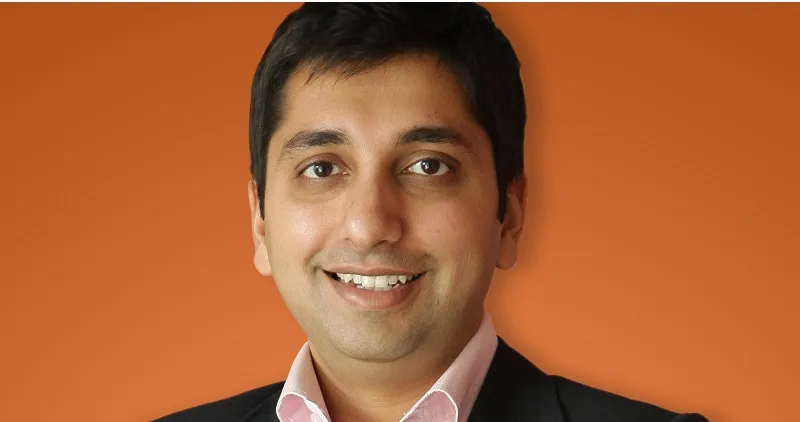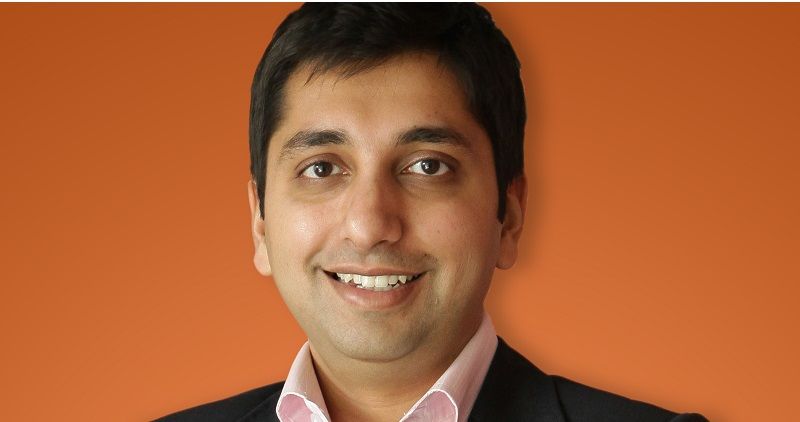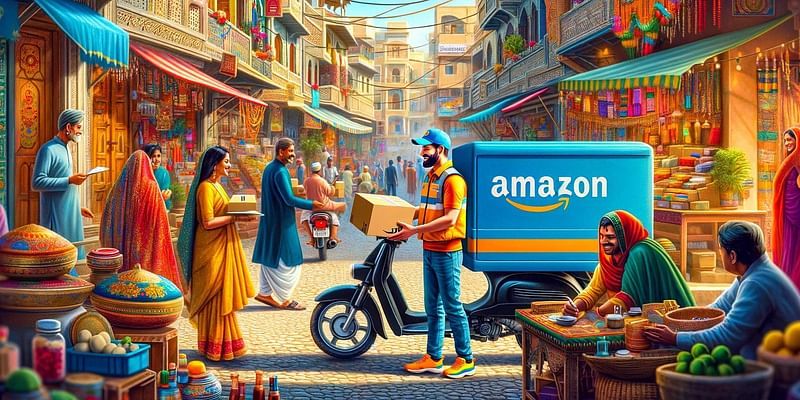The customer is truly king as Arvind Internet takes legacy retail to the cloud
With CRM spends set to outdo ERP allocations, Mukul Bafana is leading Arvind Internet, the online arm of Arvind Group, and enhancing the brand’s omni-channel experience.
Mukul Bafana isn’t your regular CEO. The chief executive officer of Arvind Internet wears smart polo-necks, sits in an open office that is almost like a co-working space, and takes notes incessantly about things that are changing retail.
Every morning he sits with the heads of technology, branding and marketing to understand if their software-as-a-service product is impacting a brand’s omni-channel experience. Quick to point out opportunities in the industry, he asks this reporter about companies that are disruptive in technology, logistics and branding.
“You know there are so many retailers who have fragmented technology globally; e-commerce is a small portion in the large retail play and the future is in integrating experiences,” Mukul says. He says retailers now need to plan their RoI in a digital world, stating that today there is no strategy to connect the dots between the physical and digital world.
Arvind Internet began with this premise and now works with more than 45 brands (30 in-house brands). It has, over four years, integrated close to 1,500 stores across the country. Backed by a $10 million investment from Arvind Ltd, the company is now increasing its footprint across other brands.

The beginning
It all began with Mukul running into Kulin Lalbhai, the scion and executive director of Arvind Ltd, a Rs 8,878.45 crore manufacturing to retail and house of brands conglomerate.
It was early 2014. Mukul, 32 years old then, was in the US and was about to set up his own startup in the fashion retail space. He ran into his friend Kulin in the Bay Area. Both of them had earlier met at Harvard Business School between 2010 and 2012 and shared a common love for technology impacting the future of retailing.
Mukul went on to be the Co-founder of Jabong and soon went to the US to set up his own business. At the time in 2014, Arvind Ltd, which was a Rs 6,785.44 crore business, wanted to envision the future of the shopping experience, in a physical and digital world. For that, the organisation began to take note of the working methods of ecommerce groups like Flipkart and Snapdeal. In 2014, these companies had raised billions of dollars in India.
With this background, Kulin told Mukul that Arvind Ltd had a nationwide presence and several in-house brands, which gave them a unique opportunity to build technology to understand the future of retailing with an omni-channel experience (a unified experience across sales channels).
“I decided to take the plunge because Kulin and I shared the common goal of using technology and data to identify customers,” Mukul says.
Mukul and Kulin chalked out a plan and took it to the Arvind board in Ahmedabad, where they were grilled about why they needed to invest in technology. The pitch was simple: by having a digital experience, in stores, and combining the power of the mobile, Arvind could soon increase its revenue multi-fold. The duo told the organisation that it would run like a startup and they began with a 15-member team of technology experts. The group now expects at least Rs 800-1,000 crore to come from phygital experiences, in-store digital experiences combined with mobile experiences based on location, by 2019.
‘Creyating’ the business
In the first few months Mukul went about integrating the portal Creyate, a custom clothing experience and several stores. The first task was to look at how to build the business in a holistic manner with cloud tech and liberate the customer from coming to the store.
The company revamped its entire technology by moving to the cloud. The plan was to connect mobile, store, inventory and delivery processes digitally. However, creating simplicity takes time and experience, which is what the 150-member Arvind team did in three years.
“I spend several hours looking at customer behaviour,” Mukul says. He says that the modern customer looks at everything on his smartphone first and then decides how the product has to be shipped or where it should be picked up by him. Based on this, he figured out a few steps for the walk ahead:
- A person using the Nnnow app could find an Arvind store nearby to pick up the product, or the product could be shipped home.
- The second thing Mukul set in place with his team was to look at the consumer in the store. Imagine when a customer comes into the store and picks up a pair of jeans or a shirt and likes the fit but not the colour. The store manager could quickly find inventory in another store and tell the customer that he could either have the product shipped home or pick it up from in another store. Once the customer pays for the product, the ticket is generated to the other store to keep the item ready to be shipped or picked up by the customer. By doing so, sales would increase and this would be a direct result of empowering the retail associate with technology. This increased sales conversion by at least 15 percent on store-to-store basis.
- The third thing that Mukul and his team did was to integrate the supply chain of the stores to the digital experience and ensure that at any given point of time the customer should not leave the store unsatisfied as all stores were linked with live inventory and would track returns too.
- The fourth thing Arvind Internet did after serving at least 1000 of their own stores was to take this body of knowledge as a software-as-a-service product to retailers looking to build an omni-channel experience. After April last year, the group began to work with at least 15 brands on a commercial experience and added close to 500 more stores to their portfolio.
“This was a conscious journey that Kulin and I set out on. The first couple of years we went after our own brands and now we are in a position to serve customers,” Mukul says.
The platform can be integrated into the retailer’s business in a month and is an on-premise and cloud-based solution. It creates data because it integrates omni-channel shopping with delivery and inventory management. It gives a complete dashboard to the retail company’s CEO and the company knows what is happening in each store on a live basis. When the retailer uses this platform, the data generated makes the CRM tool more powerful. Think of Arvind Internet’s platform like a hybrid CRM.
Gartner analysts revealed that CRM has edged past ERP as the top application software investment priority. By the end of 2017, CRM spends will be $36.5 billion as compared to $34.5 billion spends on ERP. This year, CRM is closing the gap on ERP; spends on ERP were $31.8 billion while they were $31.7 billion for CRM. This further validates a business focus on enhancing customer experience, with both mature and emerging regions emphasising investments in CRM.
Arvind Internet wants to not just power Arvind Ltd, but also change the fortunes of other retailers. However, it refused to divulge details on commercial agreements with other retailers and also the revenues of the company.
What are other retailers doing?
Over the last 18 months, Shoppers Stop has set in motion a completely new digital strategy and is working closely with Cisco to connect to the modern consumer in a manner where all formats will play a major role in increasing revenues.
In the new strategy, every store will connect to a digital screen (from TV to smartphone) to create a shopping experience. For this, the entire system, from billing to loyalty to CRM to ERP platforms to warehouse management systems, has to be integrated with the consumer’s buying behaviour.
Anil Shankar, VP – Solutions and Technology, Shoppers Stop, says, “The changes over the last two years have been faster than in the previous 25 years. To win the consumer today, you need digital experiences integrated into all channels.” He adds that in the digital world brick and mortar must serve the consumer everything, everywhere, and every time.
Currently, digital or omni-channel revenues of Indian brands contribute less than 7 percent of the overall numbers, with Arvind Retail being the highest.
Globally, multi-billion dollar retailers are making omni-channel work for them. Of its total revenues of $25 billion, John Lewis earns 33 percent from omni-channel retailing. Similarly, Nordstorm earns 20 percent of its $14.5 billion in omni-channel revenues while Macy’s earns close to 16 percent of its $26 billion from omni-channel retailing.
Shoppers Stop is piloting this to win over the consumer of the future, and wants them to remain on a single platform with multiple channels for shopping.
Even the $3billion Future Group is making its moves. It is working with Manthan to create a unified data platform to understand customers and its products.
DD Mishra, Research Director at Gartner, says, “IT is moving from being a support function to an important business enabler.” He says the boundaries between technology and business have blurred and in some cases even merged. “We are now in a digital era and every business leader is also a technology leader.”
As he sips green tea and goes from meeting to meeting, Mukul says this is the “most exciting time” to be in Indian retailing, adding that only the digital experience will change retailing for legacy businesses.
According to consulting firm Ernst and Young, retailing is a $650 billion opportunity with only 10 percent of the market organised. Of this pie, food retailing has the largest share while apparel retailing is close to $15 billion.
Mukul and his team are eyeing a really big bite of that pie!








![[Exclusive] Vauld to seek 3-month moratorium extension as creditors panel explores bailout options](https://images.yourstory.com/cs/2/a09f22505c6411ea9c48a10bad99c62f/VauldStoryCover-01-1667408888809.jpg)
